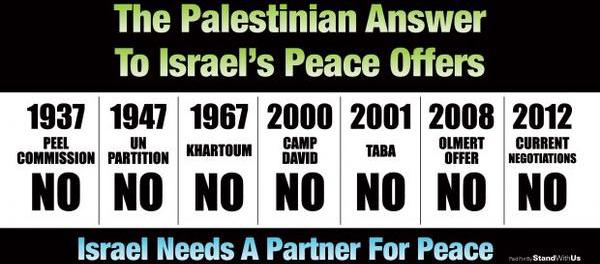The Power of the Pen Abused
The unceasing drumbeat of Israel-bashing on the pages of the New York Times is not exactly a secret. Such editorials appear more than the Geico reptile comes on TV to sell us car insurance. But in mid-December, the limit on the NYT’s image of promoting “objective journalism” was reached. When it comes to Israel, it seems, its critics and enemies enjoy a year-round open season on the Jewish state. As Jonathan Tobin writes in Commentary: “In the not-so-distant past, writers like A.M. Rosenthal and William Safire would balance the views of the editorial column and the paper’s left-wing columnists, but now there is no one on staff ready to do so”.
As a result, in mid-December, Netanyahu’s senior adviser Ron Dermer wrote a letter to the New York Times explaining why Prime Minister Netanyahu “respectfully declined” to write an op-ed piece for the newspaper explaining Israel’s positions:
Dear Sasha,
I received your email requesting that Prime Minister Netanyahu submit an op-ed to the New York Times. Unfortunately, we must respectfully decline.
On matters relating to Israel, the op-ed page of the “paper of record” has failed to heed the late Senator Moynihan’s admonition that everyone is entitled to their own opinion but that no one is entitled to their own facts.
A case in point was your decision last May to publish the following bit of historical revision by Palestinian President Mahmoud Abbas:“It is important to note that the last time the question of Palestinian statehood took center stage at the General Assembly, the question posed to the international community was whether our homeland should be partitioned into two states. In November 1947, the General Assembly made its recommendation and answered in the affirmative. Shortly thereafter, Zionist forces expelled Palestinian Arabs to ensure a decisive Jewish majority in the future state of Israel, and Arab armies intervened. War and further expulsions ensued.”
This paragraph effectively turns on its head an event within living memory in which the Palestinians rejected the UN partition plan accepted by the Jews and then joined five Arab states in launching a war to annihilate the embryonic Jewish state. It should not have made it past the most rudimentary fact-checking.
The opinions of some of your regular columnists regarding Israel are well known. They consistently distort the positions of our government and ignore the steps it has taken to advance peace. They cavalierly defame our country by suggesting that marginal phenomena condemned by Prime Minister Netanyahu and virtually every Israeli official somehow reflects government policy or Israeli society as a whole. Worse, one columnist even stooped to suggesting that the strong expressions of support for Prime Minister Netanyahu during his speech this year to Congress was “bought and paid for by the Israel lobby” rather than a reflection of the broad support for Israel among the American people.
Yet instead of trying to balance these views with a different opinion, it would seem as if the surest way to get an op-ed published in the New York Times these days, no matter how obscure the writer or the viewpoint, is to attack Israel. Even so, the recent piece on “Pinkwashing,” in which Israel is vilified for having the temerity to champion its record on gay-rights, set a new bar that will be hard for you to lower in the future.
Not to be accused of cherry-picking to prove a point, I discovered that during the last three months (September through November) you published 20 op-eds about Israel in the New York Times and International Herald Tribune. After dividing the op-eds into two categories, “positive” and “negative,” with “negative” meaning an attack against the State of Israel or the policies of its democratically elected government, I found that 19 out of 20 columns were “negative.”
The only “positive” piece was penned by Richard Goldstone (of the infamous Goldstone Report), in which he defended Israel against the slanderous charge of Apartheid.
Yet your decision to publish that op-ed came a few months after your paper reportedly rejected Goldstone’s previous submission. In that earlier piece, which was ultimately published in the Washington Post, the man who was quoted the world over for alleging that Israel had committed war crimes in Gaza fundamentally changed his position. According to the New York Times op-ed page, that was apparently news unfit to print.
Your refusal to publish “positive” pieces about Israel apparently does not stem from a shortage of supply. It was brought to my attention that the Majority Leader and Minority Whip of the U.S. House of Representatives jointly submitted an op-ed to your paper in September opposing the Palestinian action at the United Nations and supporting the call of both Israel and the Obama administration for direct negotiations without preconditions. In an age of intense partisanship, one would have thought that strong bipartisan support for Israel on such a timely issue would have made your cut.
So with all due respect to your prestigious paper, you will forgive us for declining your offer. We wouldn’t want to be seen as “Bibiwashing” the op-ed page of the New York Times.
Sincerely,
Ron Dermer
Senior Advisor to Prime Minister Netanyahu
The latter comment on “Bibiwashing” refers to a piece called “Israel and Pinkwashing” from November. In that piece, a City University of New York humanities professor lambasted Israel for, as Dermer wrote, “having the temerity to champion its record on gay rights.” It was that piece that “set a new bar that will be hard for you to lower in the future.”
Today, it would not be an exaggeration to state that the editorial policy of the New York Times towards the Jewish state is virtually indistinguishable from the blatant anti-Israeli hostility published by the Guardian or the BBC.
With the election of Prime Minister Netanyahu, the NYT editors embarked on a determined effort to undermine and demonize the Israeli government whilst invariably providing the Palestinians with a free pass. In September, in an editorial about the push for U.N. recognition of Palestinian statehood, the Times declared that it put the “greater onus on Mr. Netanyahu” for the stalled Israeli-Palestinian talks, claiming he “has used any excuse to thwart peace efforts.” In another editorial a few days later, the newspaper accused Netanyahu of refusing “to make any compromises with the Palestinians.”
It would appear that the Palestinians rejection of any talks with Israel unless and until Israel agrees to all their demands; their endless breaches of the terms of the Oslo Accords; their absolute refusal to recognize Israel as a Jewish state; their continuous efforts to idolize suicide bombers and justify terrorism through their educational system, mosques and media in the name of “martyrdom”, the pending pact between the PLO and Hamas (and its dangerous implications for Israel), the monthly allowances paid by Abbas’s administration to families of suicide bombers and imprisoned terrorists; the naming of streets, squares and sport tournaments after terrorists; and speaking the language of “peace” to Western English-speaking audiences, while continually preaching hate and war to their own people in Arabic (see Isabel Kershner, “Finding Fault in the Palestinian Messages that Aren’t So Public”, December 20, 2011) mean absolutely nothing to the Times editors. The answer from the NYT is either to rationalize or ignore Palestinian incitement less the truth dampen enthusiasm to compel Israel to make further concessions. Where are the Palestinian Mandelas, Ghandis and Martin Luther Kings? Where is the Palestinian Peace Now movement? Where are the imams sermonizing for peace? Why aren’t Palestinian mothers marching in Ramallah demanding an end to incitement that teaches their children to commit suicide?
And its columnists (specifically Tom Friedman, Roger Cohen and Nicholas Kristof) have done likewise by leading the charge in castigating Israel and unabashedly praising the Arab Spring.
In a recent column, Kristof described a home-made dinner he had with a group of Moslem Brotherhood activists and approvingly quoted them claiming that their support of the Brotherhood was strong “for the same reason the Germans support Christian Democrats or Southerners favor conservative Christians”. He also suggested that “conservative Moslems insist that the Muslim Brotherhood is non-discriminatory, the perfect home for pious Christians – and a terrific partner for the West” and concluded that – “Our fears often reflect our own mental hobgoblins”. We heard this same line thirty years ago from the Times just before the Islamists seized power in Iran under Khomeini.
Kristof obviously has never met nor spoken with Sheikh Yusuf al Qaradawi, the organization’s most powerful religious leader and an avowed anti-Semite who supports the murder of Jews as does the Brotherhood’s Egyptian website (www.Ikhwanonline.com). Qaradawi expressed his desire to see a “conquered” Jerusalem in a January 24, 2011 fatwa in which he negated Jewish attachment to Jerusalem, and stated that it is the duty of Muslims to “defend” Jerusalem with “their lives, their money and all they possess, or else they will be subject to Allah’s punishment.”
This fatwa is part of Qaradawi’s long record of inciting hatred and violence against Jews and Israel. During a sermon that aired on the Arabic satellite channel Al-Jazeera TV on January 28, 2009, Qaradawi told his audience, “I will shoot Allah’s enemies, the Jews, and they will throw a bomb at me, and thus I will seal my life with martyrdom.” In another sermon on January 9, 2009, Qaradawi lashed out at Jews, including calling on God to “kill them, down to the very last one.”
He has also refused to dialogue with Jews by declining to participate in the 8th annual conference organized by the DohaInternationalCenter for Interfaith Dialogue because of the participation of Jews, and he continues to endorse Palestinian suicide bombings against Israeli civilians. Kristof omits to mention any of this.
Roger Cohen, another regular columnist for the Times has condemned the Jewish state’s “obsession with the (Iranian) nuclear bogeyman” and has praised Turkey’s anti-Semitic Prime Minister Erdogan whilst condemning Israel for not apologizing to the Turks over the Mavi Marmara flotilla incident.
Virtually every op-ed published in the New York Times has been hostile to Israel. In May, PA President Mahmoud Abbas published an op-ed falsely accusing Israel of initiating the war in 1948 by expelling Palestinians Arabs and obligating Arab armies to intervene, and, as noted in the Dermer response, the NYT refused to publish Goldstone’s withdrawal of apartheid and war crimes charges against Israel, only doing so some months later after it had appeared in the Washington Post.
Tom Friedman also consistently castigates Netanyahu whom he loathes, alleging that his Administration had become “the most diplomatically inept and strategically incompetent government in Israel’s history” (“Israel: Adrift at Sea Alone”, September 17, 2011). He also accused Netanyahu of choosing to protect the Pharaoh (Mubarak) rather than support Obama who aided the “democratization” of Egypt. He went so far as to say that Netanyahu was “on the way to becoming the Hosni Mubarak of the peace process” (“Lessons from Tahrir Square”, May 24, 2011).
Isi Liebler writes in Israel HaYom that last February, after being in Tahrir Square, Friedman proclaimed that the “people” had achieved “freedom” and were heading towards democracy. He dismissed concerns that the Moslem Brotherhood would become a dominant party.
But what provoked the greatest indignation was Friedman’s remark: “I sure hope that Israel’s Prime Minister understands that the standing ovation he got in Congress this year was not for his politics. That ovation was bought and paid for by the Israeli lobby”. He also suggested that the leading Republican candidates are in the pockets of the Jewish lobby and therefore are forced “to grovel for Jewish votes – by out-loving Israel” (“Groveling for Jewish Votes: Newt, Mitt, Bibi and Vladimir”, December 13, 2011).
It doesn’t matter to Friedman that overwhelming survey evidence, amassed over decades, show that the vast majority of the American public and the American Jewish community support Israel. It doesn’t matter to him that the support shown to Netanyahu in Congress last May was a reflection of that support.
More to the point, Friedman’s statements are unconscionable. He infers that only by undermining the special relationship between Israel and the United States can the Jewish lobby be denied their control of Congress. Such comments parrot the anti-Semitic libel of Stephen Walt and John Mearsheimer in their 2007 book “The Israel Lobby and U.S. Foreign Policy” by asserting that Congress has been “bought” by American Jews who represent less than 2% of the population and that the vast majority of the American public supporting Israel and Congress are simply useful idiots, being manipulated or bribed by the Israeli lobby.
These comments parallel comments made by Holocaust deniers such as Mahmoud Abbas, the unelected leader of the Palestinian Authority and Hassan Nasrallah, the unelected leader of Hezbollah. Nor does he ever mention Hamas, a terror group that continues to fire missiles into Israeli towns and which is theologically committed to Israel’s destruction. One can rest assured that Israel’s enemies will quote Friedman as often as they do Walt and Mearsheimer as a means of discrediting American support for Israel.
Friedman would also never admit that Israel’s Congressional support represents a rejection of President Obama’s Middle East policies of endorsing the Palestinian Arab narrative. These policies have damaged United States allies in the Arab world, endangered the free flow of oil to the West, and given Iran the time to expand its nuclear arsenal.
It may also be that Friedman was upset when Newt Gingrich exposed the link between the creation of the Palestinian Arab identity and the denial of the historical truth underlying Zionism and the establishment of the State of Israel. This is what Gingrich meant when he stated recently that the Palestinian Arabs are an “invented people”, and that they have been created to be the basis for the destruction of the state of Israel – as Palestinian leaders themselves have been quoted as saying. (1) Contrary to what Friedman has been saying, writing and believing about the Palestinian Arabs, their whole reason for existing is to deny Israel her right to exist, but you’ll never read that in the pages of the New York Times.
Times editorials and columnists like Friedman, Cohen and Kristof should not be treated lightly. They must be viewed in the context of the recent condemnations of Israel emanating from the highest echelons of the Obama Administration. Unless vigorously repudiated, these critiques will undermine the hitherto prevailing bi-partisan consensus supporting Israel.
Coming from the office of the prime minister of the Jewish state, Dermer’s message carries a moral seriousness that makes it all the more powerful. It will warm the hearts of those who have long since given up reading it. The damage the New York Times has done and continues to do in the name of promoting Middle East peace cannot be understated.
ENDNOTE
- The first Congress of Muslim-Christian Associations in the area that met in February 1919 to consider the future of the territory formerly ruled by the Ottoman Empire declared: “We consider Palestine as part of Arab Syria.” Palestinian spokesperson Ahmad Shuqeiri told the UN Security Council in 1956 that Palestine was nothing more than southern Syria. The head of the Military Operations Department of the PLO, Zuheir Muhsein, declared on March 31, 1977, “Only for political reasons do we carefully underline our Palestinian identity….The existence of a separate Palestinian identity is there for tactical reasons.” Only after the State of Israel was established in May 1948 did the term “Palestinian” become exclusively used in referring to Arabs in the area.



